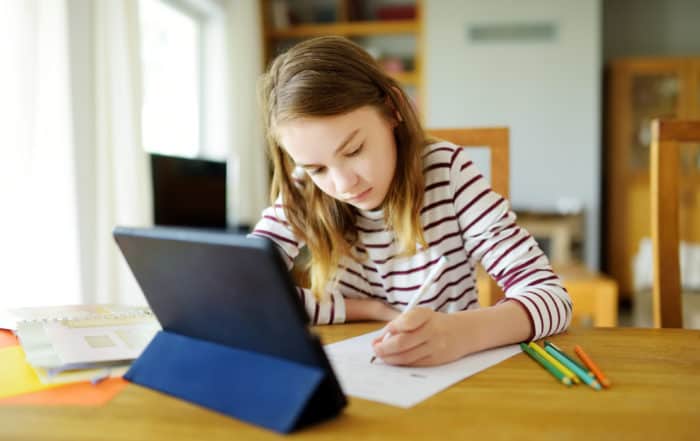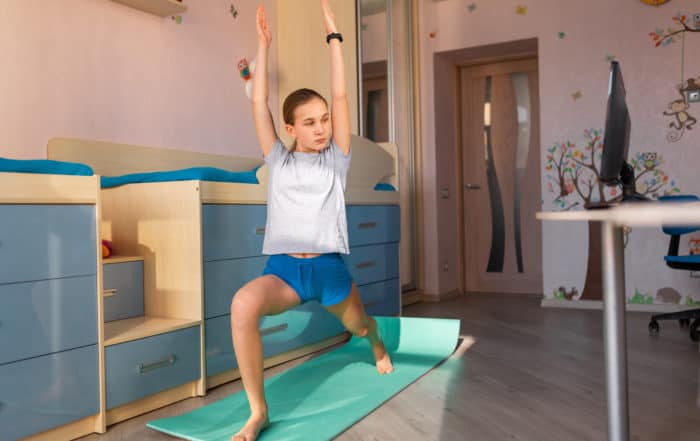The COVID-19 crisis has changed many lives in unexpected ways. Families of individuals with autism are navigating new challenges including increased stress and disruptions to routine. As some regions begin to lift their stay-at-home orders, families are confronting a new normal that may include wearing face masks and a greater focus on hygiene.
Children with autism look to their parents and caregivers for help adjusting to these new challenges. At the same time, parents and caregivers may struggle with personal feelings of confusion and anxiety. It is important to remember that you are not alone in helping your loved one navigate the challenges of the pandemic. Your care team can provide help and support during this difficult time.
Continued pandemic disruptions to routine can trigger anxiety
Anxiety is a common comorbidity among people with autism and can contribute to behavioral issues. New situations or changes to routine may increase anxiety. When stay-at-home orders first went into effect, many families had to adjust to new schedules and routines. Now, as the orders change, families are being challenged again. People with autism may struggle to understand why the requirements keep changing. Caregivers and care teams can help them handle this challenge.
Here are three ways you can help your child with autism reduce anxiety caused by disruptions to routine and the stress of the pandemic:
- Explain the situation using visual supports like the ones on our COVID-19 resources page.
- Reassure them that you will help keep them safe.
- Discuss challenges with your behavioral therapist or other members of your care team. They may be able to share anxiety management strategies that your child can use.
- Pay attention to your child’s behaviors to help them recognize when they are feeling anxious and encourage them to use self-soothing strategies.
Sensory overload from wearing masks
The CDC is encouraging people to wear masks when they go to a public place where social distancing may be difficult. As a result, an individual with autism may see people wearing masks or may have to wear a mask themselves. Both the change in the physical appearance in others and the sensory discomfort of wearing a mask can be challenging for anyone, but particularly so for some individuals with autism. Parents and caregivers can help by using these strategies:
- Use this social story to talk to your child about why people are wearing masks.
- Try to limit the time your child spends wearing a mask.
- Give the individual freedom to choose their mask, one with fabric that feels good on their skin and characters or colors that appeal to them.
For some individuals practicing with a mask at home may be helpful.
Hygiene is more important than ever
Talk to your loved one with autism about the importance of handwashing and covering their nose and mouth when they cough or sneeze. Everyone in the family should wash their hands after coming in from outside, after coughing or sneezing, before eating and after removing a mask. Keep hand sanitizer in a convenient place when hand washing is not possible.
Here are three ways to help your loved one with autism practice good hygiene to avoid illness:
- Talk to your loved one about handwashing and other hygiene concerns.
- Ask therapists and other team members to help you focus on hygiene.
- Use this handout to practice proper handwashing techniques at home.
You can ask for help
The pandemic adds unique challenges for everyone. You may be feeling overwhelmed right now, but remember that you are not alone. Get support from your care team, other caregivers, and online resources. Telehealth options are much more widely available due to the pandemic as well. Check with your insurance company and community resources for information on how to access these services.
Find more resources to help your loved one deal with the challenges of the pandemic on our COVID-19 resources page. There you can watch webinars, download social stories, and share your own story about coping with the coronavirus crisis.
Research on Maternal Immune Activation, Pregnancy & Covid-19
Learn about emerging findings on maternal immune activation and Covid-19. About the speaker: Judy Van de Water, PhD, joined the faculty in the
Preparing for Back-to-School During COVID-19
As students prepare to return to school during the COVID-19 pandemic, you may have questions about how to help your loved ones on the spectrum cope with social distancing,
Support Strategies at Home During the COVID-19 Summer
Many families are continuing to cope at home this summer and looking for practical strategies to support their loved ones diagnosed with ASD. Tune in to gain insight
Home all Day: Exercise During Covid-19
School closures, suspended recreational activities, and limited therapies due to the COVID-19 pandemic have left many families with few choices for physical activities. Learn how the need for
Coronavirus Impact: Talking to Kids About Changing Schedules, Altered Plans, and Disruption
Ongoing schedule changes and uncertainty due to the spread of the Coronavirus can present special challenges. Learn ideas for providing compassionate support to individuals on the autism spectrum
Support for Individuals with ASD: Coping with Family and Virtual Interactions During COVID-19
Learn skills to manage day-to-day, resources for virtual social interactions, and general guidelines about coping with the lockdown for individuals with ASD and their families. Handouts are online







